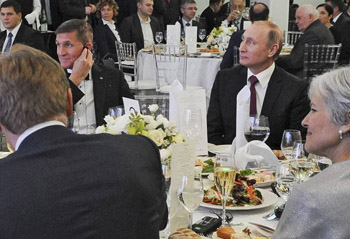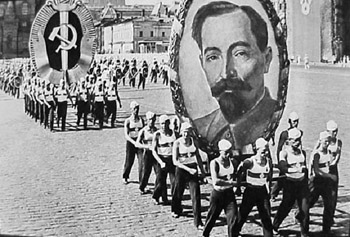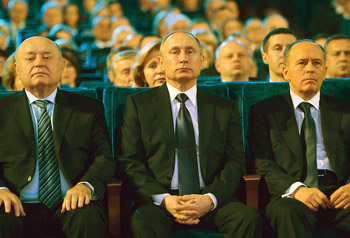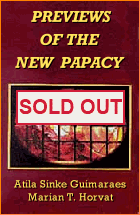International Affairs
 |
 |
 |
 |
 |
 |
 |
Bear in the Living Room
With the appointment of the former Director of the Defense Intelligence Agency, General Michael T. Flynn, to the post of President-elect Donald Trump's national security advisor, the debate over America's proper relationship with the Russian Federation is now coming into sharp focus.
 Flynn is regarded as close to Russia's president, Vladimir Putin, so much so that he was seated at the lead at the head table during the anniversary gala for RT (Russia Today), Putin's favorite vehicle for external propaganda. Whatever the truth about Flynn's personal view of Russia and its leader is, the stark reality of the goals and methods of the Moscow oligarchy must be part of any worthwhile analysis of U.S. - Russia relations.
Flynn is regarded as close to Russia's president, Vladimir Putin, so much so that he was seated at the lead at the head table during the anniversary gala for RT (Russia Today), Putin's favorite vehicle for external propaganda. Whatever the truth about Flynn's personal view of Russia and its leader is, the stark reality of the goals and methods of the Moscow oligarchy must be part of any worthwhile analysis of U.S. - Russia relations.
When considering the Russian oligarchy, the word Chekist is key. All former Soviet and/or current Russian intelligence officers consider themselves Chekists, a descriptive term derived from Cheka, an abbreviation for the Bolshevik secret police.
In today's Russia, the Chekist tradition continues and is publicly honored. Putin, a KGB veteran, calls himself a Chekist, he participates in the annual commemoration of the founding of the Cheka, and has filled his administration and government departments with "ex"-Chekists. Within Russia the FSB, one of the post-Soviet descendants of the KGB, monitors any hint of dissent and reacts when needed. Intimidation of the press and murder of political opponents recall Soviet oppression, which was once thought forever gone.
Communist revolutionary Vladimir (sometimes Nikolai) Lenin founded the All-Russian Emergency Committee for Combating Counter-Revolution and Sabotage, Cheka for short, to protect the newly established revolution by eliminating any hint of opposition. In the accomplishment of its mission, the Cheka was thorough and completely merciless. The first Cheka director, Felix Dzerzhinsky, stated that he wanted "hard men without pity." Dzerzhinsky got them and what resulted was the Red Terror. At first thousands died or were imprisoned, in time millions shared the same fate.
 A later Cheka version (known by the initials NKVD) carried out Soviet dictator Josef Stalin's mass executions and the politically driven famine (known in Ukrainian as the Holodomor), which killed as many as 10 million. Similar techniques were used against rebellious Kazakhs. The name of the Soviet secret police would change through the years, the last and best known manifestation was popularly known as KGB, but Cheka goals and methods would be consistent.
A later Cheka version (known by the initials NKVD) carried out Soviet dictator Josef Stalin's mass executions and the politically driven famine (known in Ukrainian as the Holodomor), which killed as many as 10 million. Similar techniques were used against rebellious Kazakhs. The name of the Soviet secret police would change through the years, the last and best known manifestation was popularly known as KGB, but Cheka goals and methods would be consistent.
To fit the needs of the Party, the Cheka also operated beyond the borders of the Soviet Union. Foreign espionage units first went after those considered to be dangerous counter-revolutionaries and, then, sought to subvert nations around the world. Methods included propaganda, assassination and, early on, outright (and failed) attempts to instigate full-scale rebellion. Soviet intelligence would, of course, do whatever possible to aid pro-Soviet revolutionaries.
Chekists trained the communist secret police in other nations, including the feared STASI of East Germany and Cuba's still very active and effective internal and external spy services.
Throughout the decades of the Soviet era, intelligence officers continued to refer to each other and those before them as Chekists. They were the "sword and shield," the military wing, of the Communist Party.
Moscow is once again seen as an aggressive world force, thanks in large part to its spy services. The FBI has acknowledged that Russian espionage against the U.S. is at Cold War levels, while our European allies are shocked at the level of Russian interference in their respective societies, from propaganda to cyber-warfare (which is also practiced against the United States).
 The SVR is the external spy service which was spun-off from the KGB after the Soviet collapse, but recently it has been joined in its overseas spying by the FSB. Moscow, no doubt, has sensed American weakness and uncertainty abroad. This may be the reason why informal understandings dating from the Cold War regarding the treatment of each other's personnel have been seriously breached. American diplomats and undercover officers have been beaten, families threatened and even pets killed. It appears that FSB thuggery practiced against the Russian people is beginning to be employed in the diplomatic field.
The SVR is the external spy service which was spun-off from the KGB after the Soviet collapse, but recently it has been joined in its overseas spying by the FSB. Moscow, no doubt, has sensed American weakness and uncertainty abroad. This may be the reason why informal understandings dating from the Cold War regarding the treatment of each other's personnel have been seriously breached. American diplomats and undercover officers have been beaten, families threatened and even pets killed. It appears that FSB thuggery practiced against the Russian people is beginning to be employed in the diplomatic field.
In all human history, there has never been so vicious an organization as the Cheka and its later manifestations. By the 1930s, Chekists had become known as being so effective in disposing of their opponents that Germany's Nazi government attempted to imitate Chekist techniques by establishing its own version, popularly known the Gestapo (German abbreviation for secret state police).
This is the Chekist heritage for very nearly a century: oppression, murder, imprisonment, fear and intimidation at home, and subversion and worse abroad. This is the Chekist mindset, the rule of those who have the right to rule because their thinking is correct. No deviance is tolerated from a government line, which itself may deviate.
The Moscow oligarchy have two discernible consistencies: one, the whitewash of the communist past; the other, the slow guidance of the population under their control toward the establishment of some form of Communism. The surreptitious reestablishment of Communism is a task that Dzerzhinsky himself might relish.
This is the Russian reality that the American people face and with which our politicians must come to grips. Future generations are depending on us.


Flynn. left, at Putin's side at the Russia Today gala
When considering the Russian oligarchy, the word Chekist is key. All former Soviet and/or current Russian intelligence officers consider themselves Chekists, a descriptive term derived from Cheka, an abbreviation for the Bolshevik secret police.
In today's Russia, the Chekist tradition continues and is publicly honored. Putin, a KGB veteran, calls himself a Chekist, he participates in the annual commemoration of the founding of the Cheka, and has filled his administration and government departments with "ex"-Chekists. Within Russia the FSB, one of the post-Soviet descendants of the KGB, monitors any hint of dissent and reacts when needed. Intimidation of the press and murder of political opponents recall Soviet oppression, which was once thought forever gone.
Communist revolutionary Vladimir (sometimes Nikolai) Lenin founded the All-Russian Emergency Committee for Combating Counter-Revolution and Sabotage, Cheka for short, to protect the newly established revolution by eliminating any hint of opposition. In the accomplishment of its mission, the Cheka was thorough and completely merciless. The first Cheka director, Felix Dzerzhinsky, stated that he wanted "hard men without pity." Dzerzhinsky got them and what resulted was the Red Terror. At first thousands died or were imprisoned, in time millions shared the same fate.

Comrades honor Dzerzhinsky, first director of Cheka
To fit the needs of the Party, the Cheka also operated beyond the borders of the Soviet Union. Foreign espionage units first went after those considered to be dangerous counter-revolutionaries and, then, sought to subvert nations around the world. Methods included propaganda, assassination and, early on, outright (and failed) attempts to instigate full-scale rebellion. Soviet intelligence would, of course, do whatever possible to aid pro-Soviet revolutionaries.
Chekists trained the communist secret police in other nations, including the feared STASI of East Germany and Cuba's still very active and effective internal and external spy services.
Throughout the decades of the Soviet era, intelligence officers continued to refer to each other and those before them as Chekists. They were the "sword and shield," the military wing, of the Communist Party.
Moscow is once again seen as an aggressive world force, thanks in large part to its spy services. The FBI has acknowledged that Russian espionage against the U.S. is at Cold War levels, while our European allies are shocked at the level of Russian interference in their respective societies, from propaganda to cyber-warfare (which is also practiced against the United States).

A tight trio: KGB Putin flanked by FSB & SVR directors
In all human history, there has never been so vicious an organization as the Cheka and its later manifestations. By the 1930s, Chekists had become known as being so effective in disposing of their opponents that Germany's Nazi government attempted to imitate Chekist techniques by establishing its own version, popularly known the Gestapo (German abbreviation for secret state police).
This is the Chekist heritage for very nearly a century: oppression, murder, imprisonment, fear and intimidation at home, and subversion and worse abroad. This is the Chekist mindset, the rule of those who have the right to rule because their thinking is correct. No deviance is tolerated from a government line, which itself may deviate.
The Moscow oligarchy have two discernible consistencies: one, the whitewash of the communist past; the other, the slow guidance of the population under their control toward the establishment of some form of Communism. The surreptitious reestablishment of Communism is a task that Dzerzhinsky himself might relish.
This is the Russian reality that the American people face and with which our politicians must come to grips. Future generations are depending on us.

Posted December 2, 2016
International News Analysis - Today
An uncompromising weekly analysis of the world situation
Contact T. Westerman at
www.inatoday.com
or P.O. BOX 5182, Rockford, ILL, 61125-0182
______________________
______________________
 Volume I |
 Volume II |
 Volume III |
 Volume IV |
 Volume V |
 Volume VI |
 Volume VII |
 Volume VIII |
 Volume IX |
 Volume XI |
 Special Edition |
 Special Edition |


